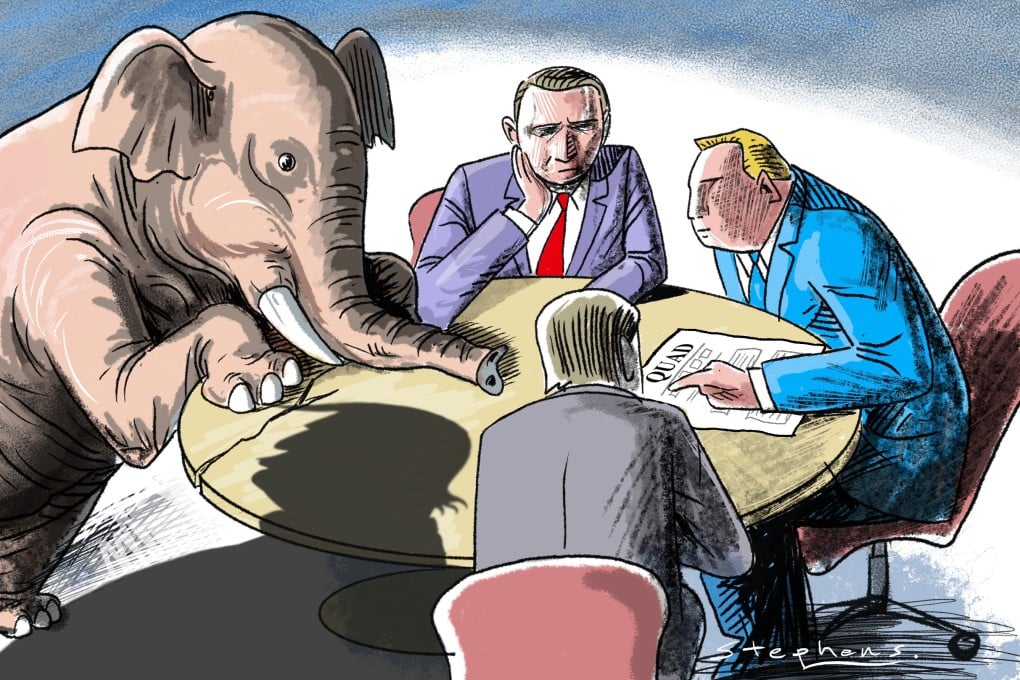Opinion | Why the Quad faces an uncertain future
The grouping’s members are pulling in different directions, and a second term for Donald Trump might upend America’s values-based global strategy

His guests from Japan, Australia and India, however, were careful not to portray the gathering as a China-bashing forum but instead as a constructive avenue for global cooperation.
In their joint statement, Biden, Australian Prime Minister Anthony Albanese, Indian Prime Minister Narendra Modi and Japanese Prime Minister Fumio Kishida underscored their “shared values”, and commitment to “the international order based on the rule of law” and “a free and open Indo-Pacific that is inclusive and resilient”.
The statement did not directly single out China. Instead, the Quad leaders announced initiatives in public health, cutting-edge and critical technologies, quality infrastructure and, crucially, maritime security. Next year, the four powers plan to hold their first joint maritime patrol mission in a clear show of force and shared purpose.

